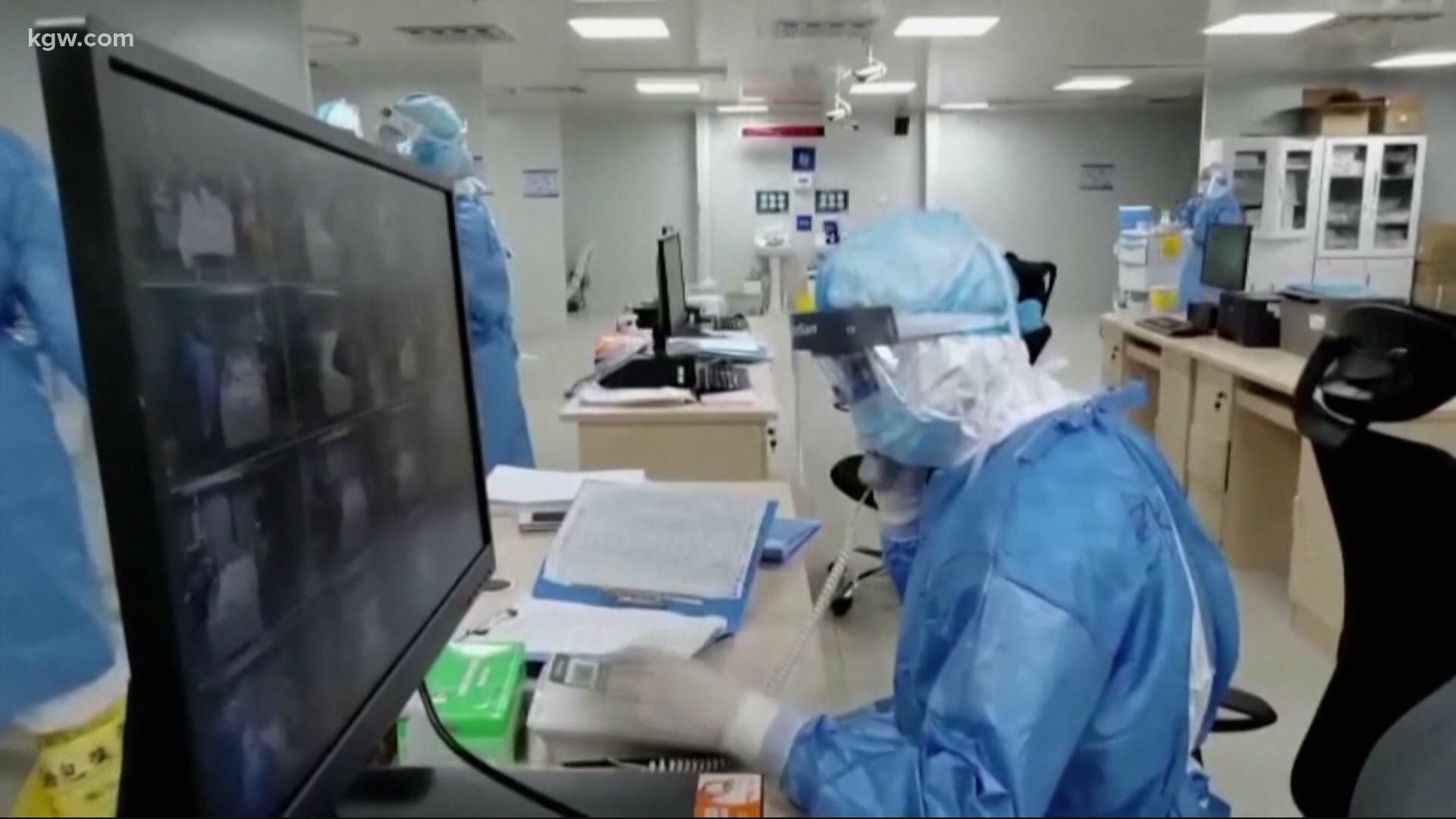BEND, Ore. — Health officials call hospitalizations a late or lagging indicator of what’s happening with COVID-19. Bottom line: a rise in cases eventually creates more people needing treatment in hospitals. That's what's happening now, all over Oregon.
The Oregon Health Authority (OHA) has divided the state into seven regions where health care workers are fighting the disease. In Region 7, which includes Jefferson, Wheeler, Grant, Crook, Deschutes, Klamath, Lake and Harney counties, 401 of 511 of hospital beds, or about 80% were occupied, and 32 of 49 ICU beds, more than 60%, are in use, too. Of those, 15 patients confirmed with COVID-19 are part of that hospital population.
Dr. Jeff Absalon is chief physician executive at St. Charles Health System, which is based in Bend and operates several hospitals and medical facilities in Central Oregon. He said they're managing now, but concerned about what may come.
“And we are, of course, concerned that if we don't take some intervention and ask for the help of our communities to help in this regard, we're concerned that the numbers will rise,” said Absalon.
One bright spot is the supply of personal protective equipment, commonly known as PPE. It looks pretty good across the state.
“We don't have wide open supply chains but they are certainly much better than they were early in the pandemic,” said Absalon.
St. Charles has a good supply of face masks, gowns, N95 respirators and surgical masks. The only thing it has less than a month’s supply of is gloves. But if things get busier, burn rates will rise and supplies will go faster.
“If we see a surge of patients it is very possible we will need to utilize that PPE at a higher rate, so it's something that we keep an eye on a regular basis. But, again it's not at the same level of concern that we had early on in the pandemic,” said Absalon.
The biggest concern is for health care workers. If coronavirus case numbers climb too high, there won't be enough doctors, nurses and others. And the ones working on the front lines will face great stress keeping up.
“Our care givers are here every day to help sick people,” said Absalon. “If our communities can do their part to prevent the spread of this virus, you are directly helping health care workers.”

